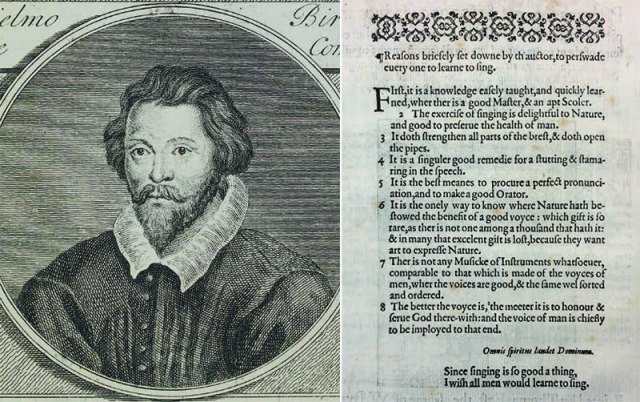‘Since singing is so good a thing’: William Byrd on the benefits of singing
Historian article

As the value of music education is again a topic of societal debate, Tudor composer William Byrd, the four hundredth anniversary of whose death is celebrated this year, was a powerful advocate of singing in early modern England, writes Katherine Butler.
Tudor composer William Byrd (c.1540–1623) is recognised today not only for his exceptional choral, keyboard and consort music, but also for the remarkable double life he lived as both a singer and organist working in the (Protestant) Chapel Royal of Queen Elizabeth I and as a staunch Catholic who provided music for clandestine worship. What is less widely known is the role that Byrd played in advocating for the importance of music – and especially singing – not just for professionals such as himself, but for everyone. At a time when the value of music education and the maintenance of musical ensembles is again a topic of societal debate, Byrd’s contribution to the case for singing has particular resonance in the current year, the four hundredth anniversary of his death...
This resource is FREE for Historian HA Members.
Non HA Members can get instant access for £2.49

